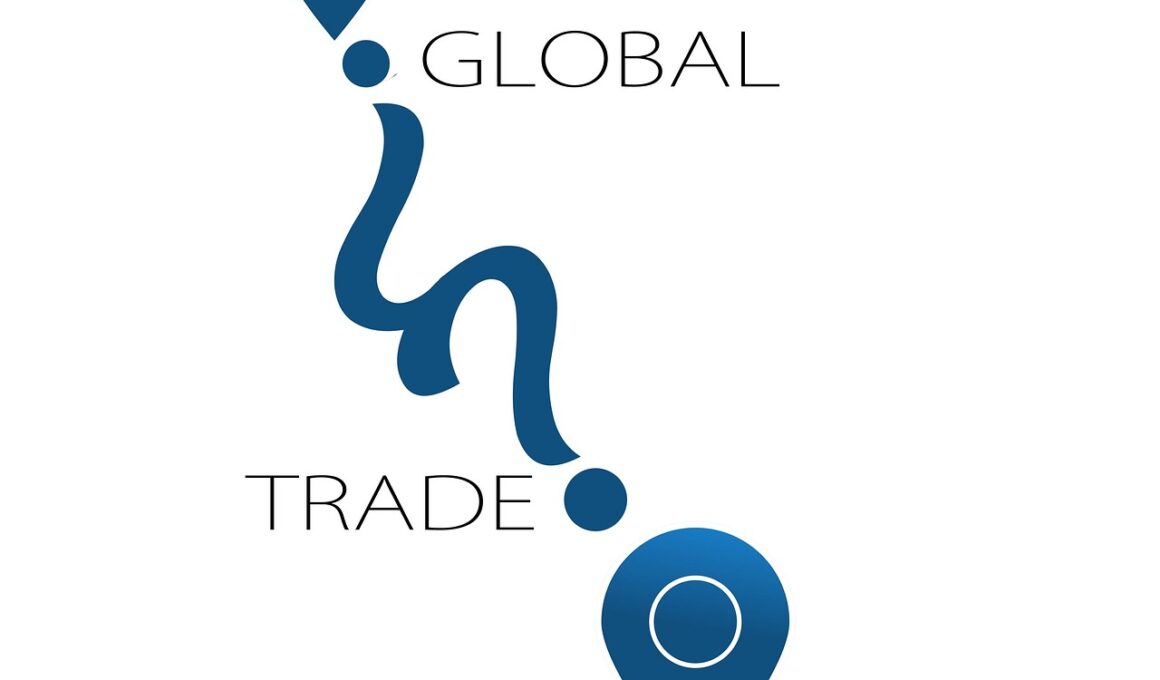Trade Policy Measures to Combat Dumping and Subsidized Imports
Trade policies play a critical role in addressing the issues of dumping and subsidized imports that can harm local industries. Dumping occurs when a foreign producer sells products in a domestic market at prices below their production costs or in excess of their normal value. This practice can lead to unfair competition, undermining domestic businesses and employment levels. To counter these effects, governments can implement a variety of trade policy measures. One common approach is through anti-dumping duties, which are tariffs placed on imported goods believed to be priced unfairly low. Countries must conduct thorough investigations to determine whether dumping has occurred and calculate the margin of dumping to establish appropriate duty levels. Such duties aim to level the playing field for domestic producers by making imported goods more expensive. Another approach involves countervailing duties against subsidized imports, which can distort market dynamics. These duties are designed to offset the benefits foreign exporters gain from subsidies, preventing them from underpricing competitors effectively. Regular assessments and updates to these measures ensure they remain effective in promoting fair trade practices.
Countries often rely on international agreements and organizations to navigate issues related to dumping and subsidies effectively. For instance, the World Trade Organization (WTO) provides a framework for trade negotiation and dispute resolution. Countries affected by dumping can bring their case before the WTO, seeking remedies that adhere to international law. This cooperation ensures a balanced approach where disputes regarding unfair trade practices can be resolved diplomatically, rather than through unilateral actions that may lead to trade wars. It’s essential for countries to provide sufficient evidence during investigations to support claims of dumping or subsidization. Moreover, the use of safeguard measures can also protect domestic industries during periods of sudden import surges. Safeguard measures include temporary tariffs that allow domestic industries time to adjust to increased foreign competition. This strategic approach helps prevent long-term damage to local markets, maintaining economic stability. Additionally, constant dialogue among nations fosters transparency in trade practices, making it easier to pinpoint unfair competition. International coalitions may also collaborate to establish standards for trade practices, encouraging fair competition globally. Thus, diplomatic engagement remains vital in shaping effective trade policies.
Implementing and Enforcing Trade Measures
Successful implementation and enforcement of trade measures against dumping require robust legal and institutional frameworks. Governments must invest in customs infrastructure and training personnel to ensure compliance with trade regulations. Efficient monitoring of imported goods is crucial in identifying instances of dumping or subsidies. Trade policy agencies should collaborate to gather market intelligence, sharing information about market prices, production costs, and foreign subsidies. This data can support proper assessments and identification of unfair practices. Moreover, establishing clear guidelines for industry players regarding the criteria and procedures for filing complaints allows for transparency and helps maintain a healthy trade environment. Legal provisions for protecting whistleblowers can incentivize insider reports of dumping, enabling authorities to take action promptly. Appeals processes must also be in place to allow exporters to challenge findings or penalties, ensuring fairness in decision-making. Promoting cooperation at an international level helps develop harmonized legal tools that streamline investigations. For instance, mutual recognition agreements between countries can facilitate more straightforward information sharing. This cooperation enhances the effectiveness of trade measures, ultimately contributing to fairer trade practices and improved economic conditions for local industries.
In addition to legal frameworks, public awareness and stakeholder engagement are essential components of an effective trade policy. Educating domestic industries about their rights and the mechanisms in place to address dumping and subsidized imports empowers them to advocate for themselves. Workshops and seminars can inform businesses about proper procedures for documenting unfair practices and filing complaints. Strengthening industry associations also allows collective voices to emerge, presenting a united front when addressing trade issues. Furthermore, consumer education is equally vital, as informed consumers can make choices that support local businesses. Understanding the implications of buying imported goods that may be the result of dumping can encourage people to prefer locally produced products. Governments may also consider implementing promotional campaigns to boost local goods, highlighting their quality and economic significance. By cultivating a strong domestic market, a country can create resilience against unfair trade practices. Active participation in international discussions focused on trade fairness ensures that any national policies align with global efforts to maintain equitable trade relations. As a result, a multifaceted approach that combines legal, educational, and community initiatives proves crucial in combating dumping and subsidized imports.
The Role of Technology in Trade Policy
Technology plays a transformative role in shaping trade policy measures, particularly in combatting dumping and monitoring imported goods effectively. Advanced data analytics enables governments to identify dumping patterns more rapidly and accurately. By leveraging big data, agencies can analyze pricing trends and market fluctuations, allowing timely intervention to curb unfair practices. Moreover, technology facilitates improved communication and collaboration among international trade bodies. Electronic platforms can streamline information sharing, enhancing response times to suspected dumping activities. Implementing blockchain technology within supply chains can further enhance transparency, making it easier to trace the origin of imported goods and assess whether they comply with trade regulations. Moreover, automated reporting and monitoring systems can significantly improve the efficiency with which authorities track imports, allowing for quicker identification of suspicious pricing behavior. Governments should invest in developing technological tools that support both compliance and enforcement of trade policies. Additionally, fostering innovation within the trade sector can create competitive advantages for domestic industries while ensuring they remain resilient against external pressures. This strategic alignment of technology with trade policy is thus essential to effectively combat dumping and promote fair competition on a global scale.
Trade policy measures must also adapt to the evolving global landscape, considering economic changes resulting from globalization. Countries increasingly depend on international supply chains, making it vital to conduct comprehensive evaluations of trade practices, especially regarding dumping and subsidies. The emergence of e-commerce has transformed marketplace dynamics, presenting new challenges for regulators. As more transactions occur online, monitoring price variations across different regions can be more challenging. Policymakers should consider incorporating digital tools that facilitate the observation of e-commerce practices, ensuring compliance with fair trade laws. New regulations may need to address the specific techniques employed by foreign entities to circumvent existing protections. Collaborating with stakeholders from both public and private sectors can yield insights necessary for crafting responsive trade policies. Furthermore, addressing concerns about regional trade agreements can complicate enforcement, as countries negotiate various terms that might clash with national regulations. Therefore, fostering dynamic trade policies that are responsive yet robust enough to address emerging challenges is essential. By staying ahead of changes within the global marketplace, countries can position themselves better to protect their domestic economies from unfair competition.
Global Collaboration in Trade Policy
Finally, global collaboration plays an instrumental role in shaping effective trade policies to combat dumping and subsidized imports. Multilateral agreements can establish shared standards for assessing dumping practices and coordinating responses among nations, providing a more cohesive front against unfair trade. Engaging in cooperative forums allows countries to share vital information regarding trade practices, ensuring that all members are aware of potential threats. This collaboration fosters a united effort to promote fair competition and uphold the integrity of the global market. Effective collaboration requires mutual trust and understanding among nations, highlighting the need for transparent communication. Initiatives such as joint investigations can lead to a more in-depth understanding of dumping issues, creating opportunities to develop best practices. Collaborative training programs that encompass various nations can ensure consistent enforcement of trade policies, preparing a workforce that understands the international dimensions of trade. Stakeholders from diverse backgrounds, including business leaders and policymakers, can benefit from shared experiences and lessons learned through collaboration. In conclusion, enhanced global cooperation is essential in fostering equitable trade relations that protect domestic industries while promoting sustainable economic growth.
In conclusion, comprehensive trade policy measures are indispensable tools for combating dumping and subsidized imports effectively. Addressing these challenges requires a multifaceted approach that encompasses legal frameworks, public awareness, technology, and global collaboration. By implementing anti-dumping and countervailing duties, countries can protect their domestic industries from unfair competition and foster economic stability. Furthermore, engaging stakeholders at all levels ensures that diverse perspectives inform policy decisions, leading to effective strategies that promote equity in trade. Combining traditional methods with innovative technology can enhance monitoring and enforcement mechanisms, ensuring that trade policies remain relevant in a rapidly changing landscape. Global collaboration in trade policy development facilitates information sharing and harmonizes enforcement measures, creating a united front against unfair trade practices. Continuous evaluation of trade measures is also vital, allowing governments to adapt to emerging trends and challenges. By fostering awareness among consumers and businesses, countries can encourage a supportive environment for local industries. Ultimately, the success of trade policy in combatting dumping relies on a cooperative commitment to fair practices and the acknowledgment of the interconnectedness of the global marketplace.





